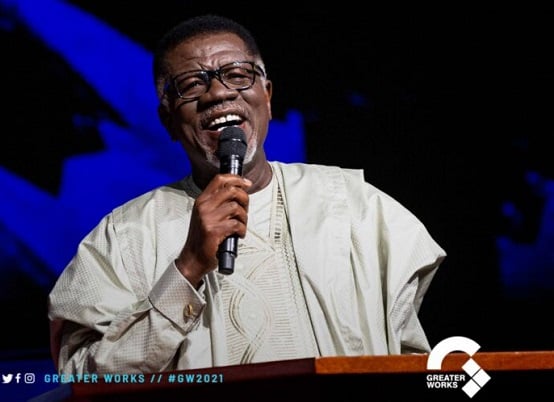Pastor Mensa Otabil, the founder of the International Central Gospel Church (ICGC), delivered a powerful message of healing and faith during the church’s Good Friday service, emphasizing the simplicity and accessibility of Christ’s healing power. He underscored that elaborate prayers are not a prerequisite for receiving divine healing, asserting that true healing stems from a deep-seated faith in Christ’s sacrifice on the cross. Drawing upon the theme “By His Stripes We Are Healed,” Pastor Otabil grounded his message in Isaiah 53:4-5, which portrays Christ’s suffering as the source of both spiritual and physical restoration.
The core of Pastor Otabil’s message revolved around the profound significance of Christ’s suffering on Good Friday. He explained that through the stripes Jesus endured, he vicariously bore the weight of humanity’s sickness and pain. This act of substitutionary atonement, according to Pastor Otabil, establishes the foundation for believers’ healing. Accessing this healing, however, doesn’t require complex rituals or eloquent prayers, but rather a simple, childlike trust in Christ’s finished work. He emphasized that the power of healing resides in the sacrifice itself, and believers receive its benefits through faith in that sacrifice. “But we trust in what He has done for us and by trusting in Him, we receive the benefit of what He died for,” Otabil proclaimed, highlighting the direct link between faith and healing.
To illustrate this principle of effortless healing, Pastor Otabil drew a parallel to the biblical account of Jesus healing Peter’s mother-in-law. This miracle, he pointed out, was performed through a simple touch, devoid of any elaborate prayer or ritual. Jesus’s mere presence and touch were sufficient to bring about instant healing. This example served to reinforce Otabil’s message that healing isn’t contingent on the length or intensity of one’s prayers, but on the power of Christ, readily available to all who believe. “You may not need somebody to scream on you to get well,” Otabil stated, dispelling the notion that dramatic displays of prayer are necessary for healing. “Just know that Jesus is here and just as He touched Peter’s mother-in-law, He will heal you. You don’t need too much prayer to get healed.”
Pastor Otabil urged the congregation to deeply reflect on the profound implications of Christ’s sacrifice. He reminded them that Jesus has already taken upon himself the burdens of sickness and pain, making healing a readily available gift for those who believe. The key to receiving this healing, he reiterated, lies in cultivating genuine faith, a trust in the finished work of Christ. This faith, he suggested, isn’t a complex theological understanding, but a simple, heartfelt reliance on Christ’s power and love.
The Good Friday service, therefore, centered on the accessibility and simplicity of Christ’s healing power. Pastor Otabil’s message served as a powerful reminder that healing isn’t earned through elaborate prayers or religious performances, but is freely offered to all who place their faith in Jesus Christ. The emphasis on faith, not as a complex ritual, but as a simple trust in Christ’s sacrifice, served as the cornerstone of his message.
In essence, Pastor Otabil’s Good Friday sermon deconstructed the common misconception that healing is a complex, difficult-to-attain objective. He presented a message of hope and accessibility, emphasizing the simplicity of receiving healing through faith in Christ’s atoning sacrifice. He encouraged believers to move away from focusing on the intricacies of prayer and instead concentrate on the power of Christ, readily available through a simple, childlike trust. The healing, he argued, is already provided; it’s a matter of receiving it through faith.














